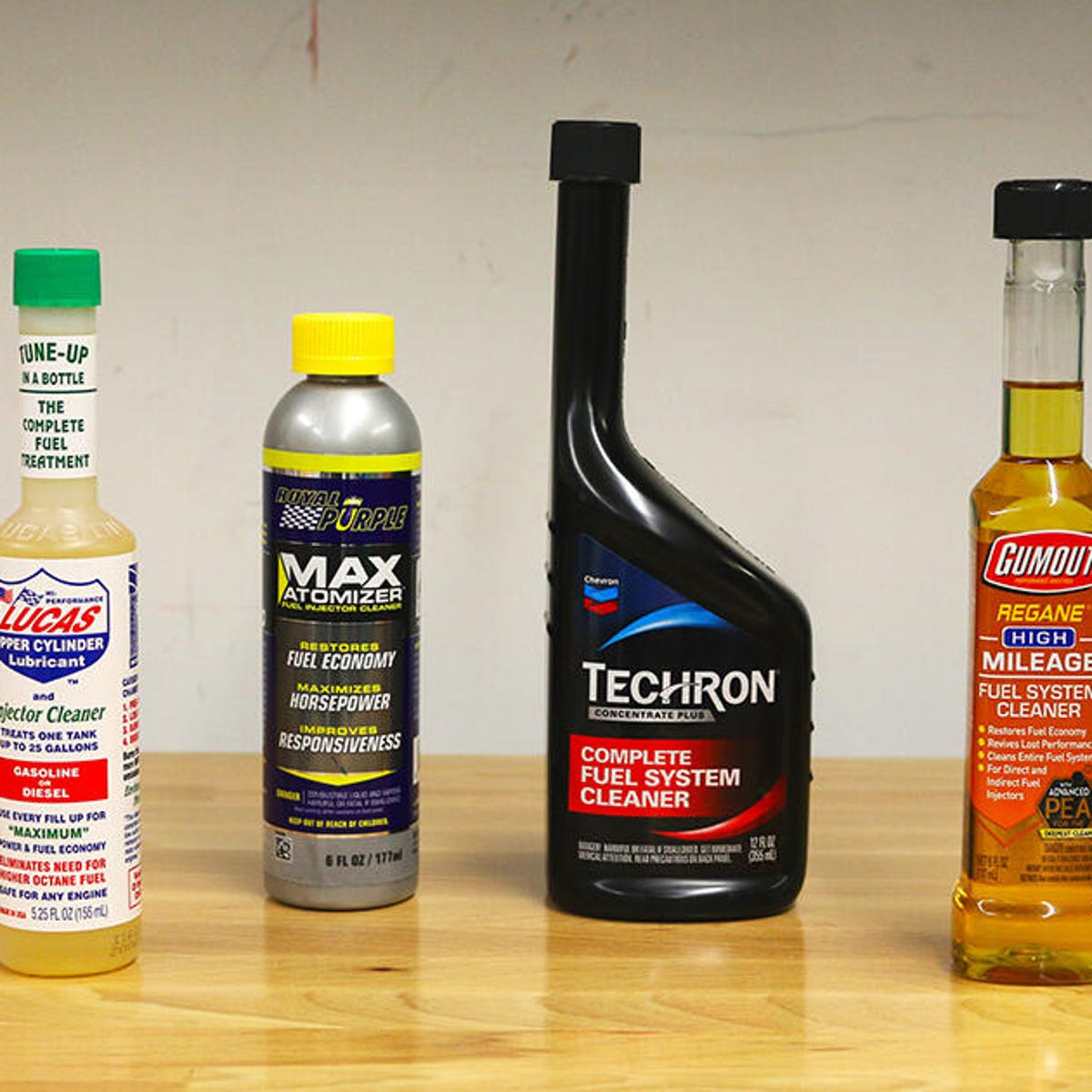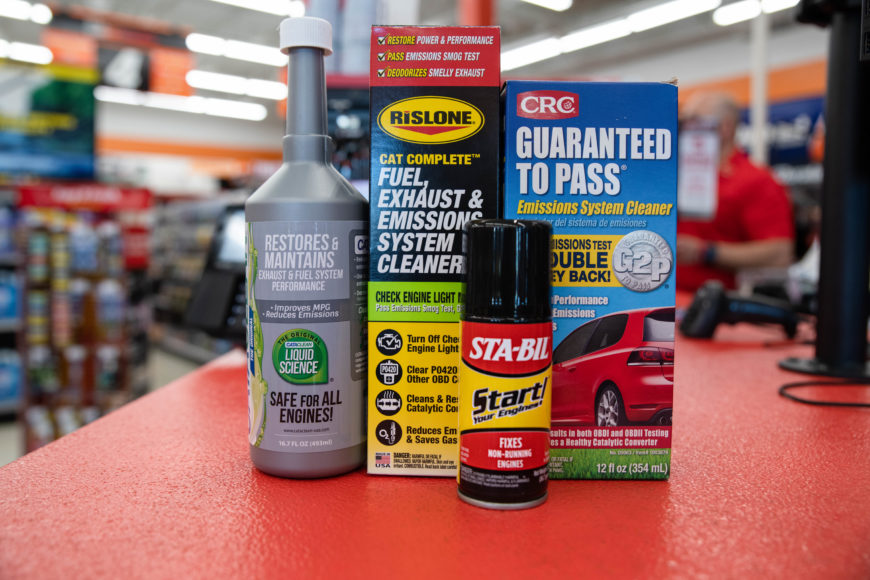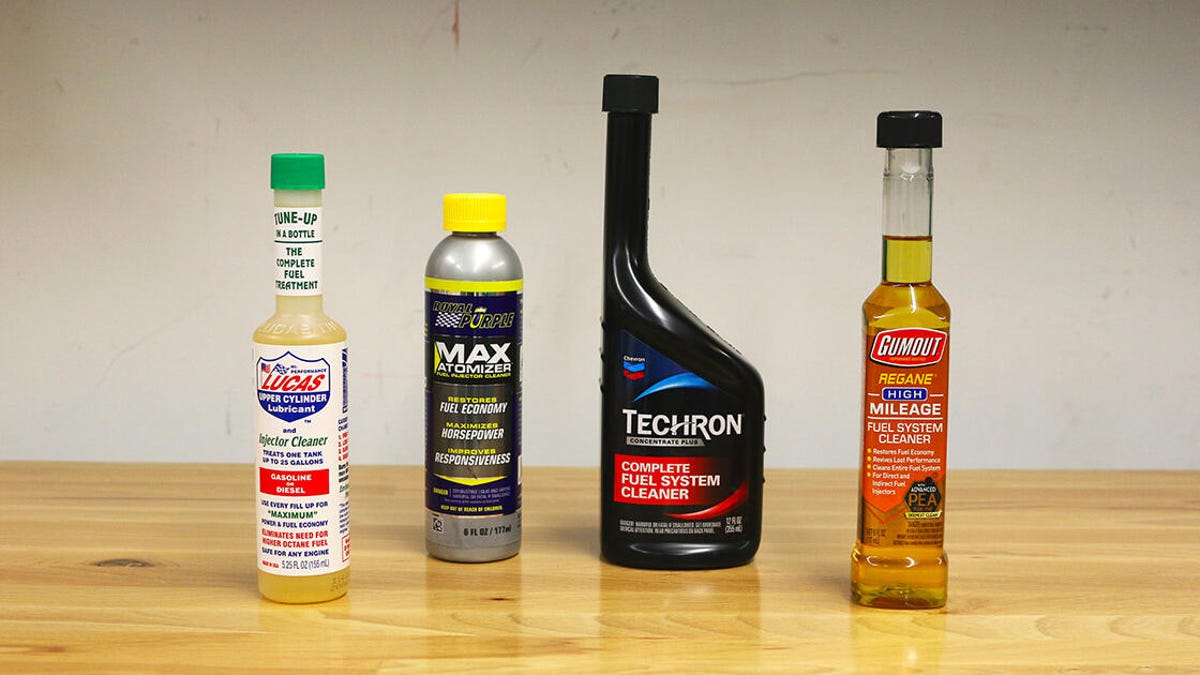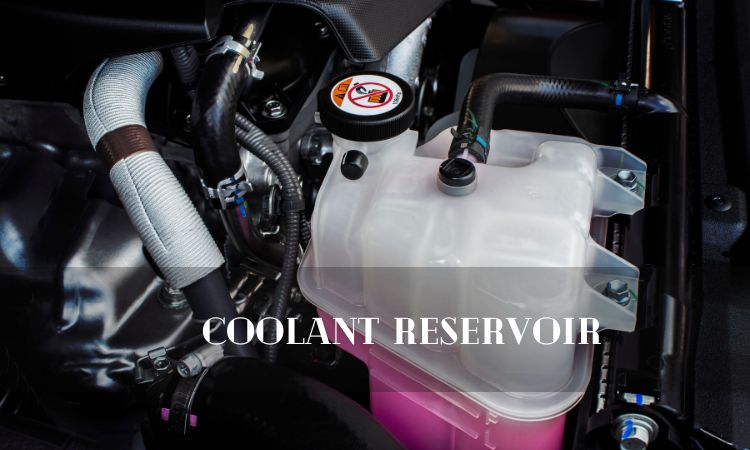Top Fuel System Cleaning Techniques for Cars
Top fuel system cleaning techniques for cars involve using specialized cleaning solutions and equipment to remove deposits and impurities from the fuel system, ensuring optimum performance and fuel efficiency. Now, let’s delve deeper into the importance of fuel system maintenance and explore different cleaning methods that can enhance the longevity and functionality of your car’s fuel system.

Credit: www.cnet.com
The Importance Of Fuel System Cleaning
The Importance of Fuel System Cleaning:
Fuel System Efficiency
Regular fuel system cleaning improves fuel efficiency, leading to smoother engine performance.
Preventing Engine Damage
Maintaining a clean fuel system helps in preventing costly engine repairs.

Credit: www.autozone.com
Common Fuel System Contaminants
When it comes to maintaining the performance and longevity of your car’s fuel system, understanding common fuel system contaminants is essential. These contaminants can negatively impact your fuel injection system, leading to reduced efficiency and potentially costly repairs. In this section, we will explore the two most common fuel system contaminants: dirt and debris, and carbon deposits.
Dirt And Debris
One of the primary fuel system contaminants that can wreak havoc on your car’s performance is dirt and debris. Over time, particles such as dust, rust, and sediment can find their way into your fuel tank and clog the injectors, fuel lines, and filters. This can restrict fuel flow, resulting in poor combustion and decreased engine efficiency. To prevent these issues, periodic fuel system cleaning is crucial.
There are various techniques to combat fuel system dirt and debris contamination:
- Regular Fuel Filter Replacement: Changing the fuel filter at recommended intervals helps trap and remove impurities before they reach the fuel injectors.
- Fuel Additives: Fuel system cleaners and additives can assist in loosening and removing deposits in the fuel lines and injectors, ensuring smooth fuel flow.
- Professional Fuel System Cleaning: Opting for a professional fuel system cleaning service can effectively remove stubborn dirt and debris, restoring your fuel system’s optimal performance.
Carbon Deposits
Another common fuel system contaminant that can impact engine performance is carbon deposits. These deposits form due to incomplete combustion, especially in engines that use low-quality fuels or do not undergo regular maintenance. Carbon deposits can accumulate on the fuel injectors, intake valves, and combustion chamber, negatively affecting fuel atomization and airflow. Over time, this can lead to rough idling, reduced power, and increased fuel consumption.
Here are a few techniques to tackle carbon deposits in your fuel system:
- Use Fuel Additives: Fuel additives designed to combat carbon buildup help break down and remove deposits, preventing further accumulation.
- Intake System Cleaning: Regularly cleaning the intake system, including intake manifold and valves, can remove carbon deposits and improve engine performance.
- Professional Carbon Cleaning: For severe carbon deposits, consulting a professional service for specialized carbon cleaning treatments is highly recommended.
By understanding the impact of common fuel system contaminants like dirt, debris, and carbon deposits, you can take proactive measures to maintain your car’s fuel system’s performance and efficiency. Regular maintenance, including fuel filter replacement, fuel additives, and professional cleaning, can help keep your fuel system clean and ensure optimal engine performance.
Traditional Fuel System Cleaning Methods
Fuel system cleaning is an essential maintenance task that helps keep your car’s engine running smoothly and efficiently. While there are modern fuel system cleaning techniques available, it’s worth exploring the traditional methods that have been used for years. These methods include additive treatments and manual cleaning, each offering their own unique advantages.
Additive Treatments
Additive treatments are a popular choice when it comes to cleaning fuel systems. These treatments involve adding a fuel system cleaner to the gas tank, where it mixes with the fuel and works its way through the system. The cleaner helps break down deposits that may have built up, unclogging fuel injectors, valves, and other components. Additive treatments are easy to use and can be done as part of your regular fuel fill-ups. They are also cost-effective, making them a convenient option for many car owners.
Manual Cleaning
For a more thorough fuel system cleaning, manual cleaning may be required. This method involves physically removing and cleaning various components of the fuel system. Professional mechanics often perform manual cleaning using specialized tools. This allows them to carefully clean and inspect each component, ensuring optimal performance. Some components that can be manually cleaned include fuel injectors, throttle bodies, and intake valves.
To manually clean the fuel injectors, for example, a professional mechanic may use a cleaning kit comprising of a solvent and an injector cleaning tool. The solvent is sprayed directly into the injectors, dissolving any stubborn deposits. The injector cleaning tool provides additional mechanical cleaning, ensuring all residues are removed. This process helps restore the fuel injectors to their original functionality, improving fuel efficiency and engine performance.
Similarly, the throttle body and intake valves can be cleaned using specialized cleaning solutions. These solutions remove carbon buildup and deposits, allowing for smoother airflow and better combustion. Manual cleaning techniques provide a more thorough and precise fuel system cleaning compared to additive treatments. However, they require professional knowledge and tools, and are often performed during routine maintenance visits or as needed.
Advanced Fuel System Cleaning Techniques
Direct Injection Cleaning
Involves removing deposits from the injector nozzles.
Hydrogen Carbon Cleaning
Uses hydrogen gas to clean carbon buildup in the engine.
Diy Vs Professional Fuel System Cleaning
When it comes to maintaining a healthy fuel system for your car, you have two main options: DIY fuel system cleaning or seeking professional assistance. Both approaches have their own set of advantages and limitations. Let’s delve into the pros and cons of each method to help you make an informed decision.
Pros And Cons
Here’s a closer look at the benefits and drawbacks of DIY and professional fuel system cleaning:
Choosing The Right Approach
When choosing between DIY and professional fuel system cleaning, consider the following factors:

Credit: www.cnet.com
Frequently Asked Questions Of Top Fuel System Cleaning Techniques For Cars
What Is The Best Way To Clean Your Fuel System?
The best way to clean your fuel system is to use a fuel system cleaner. Add it to your gas tank before filling up. It helps remove deposits and improve fuel efficiency. Regular use can help maintain a clean and efficient fuel system.
What Is The Best Fuel System Cleaner For Your Car?
The best fuel system cleaner for your car is one that improves fuel efficiency and engine performance. Look for a reputable brand recommended by car experts.
What Is A 3 Step Fuel System Cleaning?
A 3 step fuel system cleaning is a process that involves three separate actions to clean your vehicle’s fuel system. This includes an initial fuel injection cleaning, a throttle body cleaning, and a fuel tank additive. These steps help remove carbon deposits and improve fuel efficiency.
What Is A Professional Fuel System Cleaning?
Fuel system cleaning is a professional service that removes dirt and deposits from your vehicle’s fuel system. It helps improve fuel efficiency, engine performance, and reduces emissions. By using specialized tools and chemicals, it cleans injectors, valves, and other components to ensure optimal fuel delivery and combustion.
Conclusion
Maintaining a clean fuel system is crucial for optimal car performance. By utilizing these top cleaning techniques, you can improve fuel efficiency and extend the lifespan of your vehicle. Regular maintenance is key to preventing costly repairs and ensuring a smooth driving experience.
Trust in these methods for a well-maintained fuel system.



